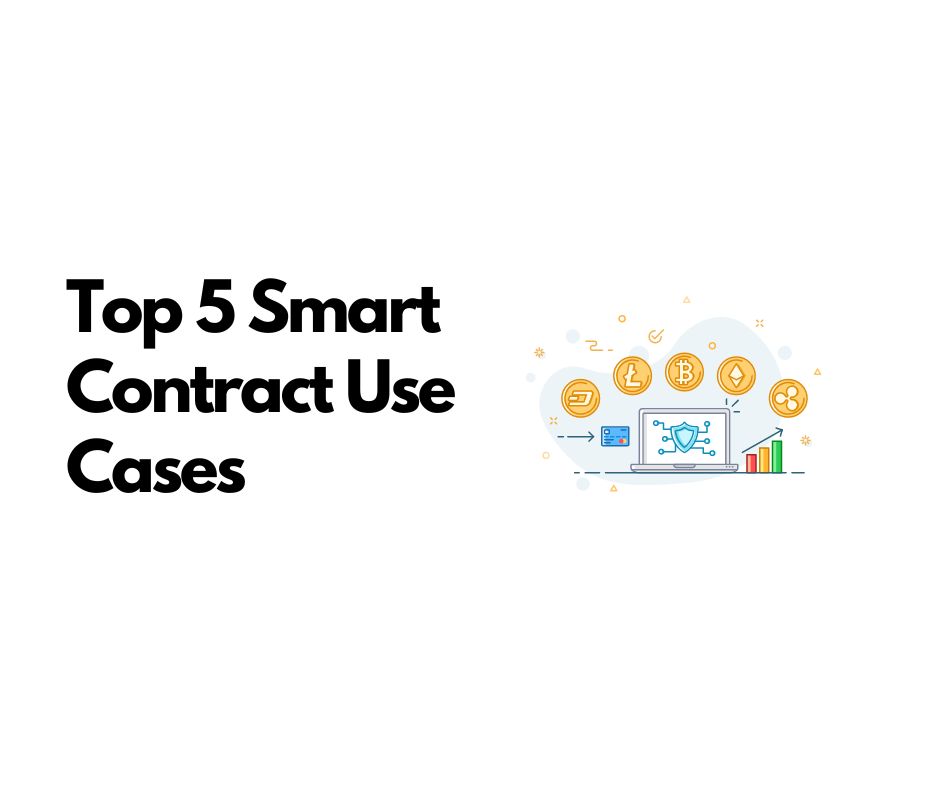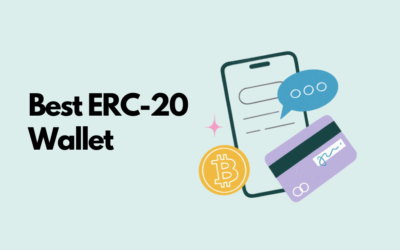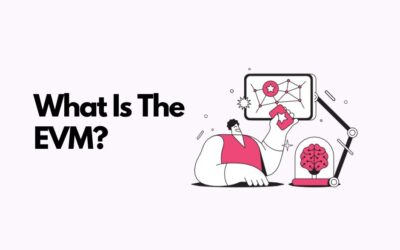A smart contract is a self-executing contract with the terms of the agreement between buyer and seller being directly written into lines of code. The code and the agreements contained therein exist on the blockchain network. Smart contracts allow for the automation of tasks, the creation of new assets, and the protection of assets through the use of cryptographic keys. They are often associated with the Ethereum blockchain and written in Solidity, but they can be implemented on other blockchains as well.
Here are five examples of smart contract use cases:
Supply chain management
Smart contracts can be used in supply chain management to streamline and automate various processes. For example, a smart contract could be set up to automatically release payment to a supplier once a shipment of goods has been received and verified. This could help to reduce the risk of payment disputes and improve the efficiency of the supply chain.
Smart contracts could also be used to track the movement of goods through the supply chain and provide a transparent record of the journey of a product from its origin to the point of sale. This can help to increase trust between parties, as well as enabling real-time tracking of inventory levels and enabling more accurate forecasting.
Overall, the use of smart contracts in supply chain management can help to improve efficiency, reduce the risk of errors or fraud, and increase transparency and trust between parties.
Identity verification
Smart contracts can be used in identity verification to automate the process of verifying and storing identity information. Here’s how it could work:
- A user submits their identity information, such as a government-issued ID or passport, to a smart contract.
- The smart contract verifies the authenticity of the documents by checking them against a trusted data source, such as a government database.
- If the documents are verified, the smart contract stores the identity information on the blockchain, where it is protected by cryptographic keys.
- When the user wants to prove their identity to another party, they can use their cryptographic keys to access their identity information stored on the blockchain.
Using a smart contract in this way can help to reduce the risk of identity fraud and improve the efficiency of identity verification processes. It can also give users more control over their own identity information, as they are the ones who hold the cryptographic keys that grant access to it.
Financial applications
Smart contracts can be used in a variety of financial applications. Here are a few examples:
- Automated escrow: A smart contract can be used to hold funds in escrow until certain conditions are met. For example, a smart contract could be set up to hold a down payment on a house until the closing date, at which point it would release the funds to the seller.
- Peer-to-peer lending: Smart contracts can be used to facilitate peer-to-peer lending by automating the process of loan origination, repayment, and default.
- Derivatives: Smart contracts can be used to automate the process of trading derivatives, such as futures and options.
- Insurance: Smart contracts can be used to automate the claims process for insurance policies. For example, a smart contract could be set up to automatically release funds to policyholders in the event of a covered loss.
Overall, the use of smart contracts in financial applications can help to reduce the need for intermediaries, increase the efficiency of financial transactions, and reduce the risk of errors or fraud.
Real estate
Smart contracts can be used in the real estate industry to automate and streamline various processes, such as:
- Property listings: Smart contracts can be used to create and manage property listings on the blockchain, making it easier to search and compare properties.
- Offer and acceptance: A smart contract could be set up to automatically execute the terms of an offer to purchase a property, including the transfer of funds and the transfer of ownership.
- Mortgage management: Smart contracts can be used to automate the process of origination, servicing, and repayment of mortgages.
- Property management: Smart contracts can be used to automate the process of tracking and managing rental properties, including the collection of rent payments and the scheduling of maintenance.
Overall, the use of smart contracts in real estate can help to reduce the risk of errors or fraud, increase the efficiency of transactions, and increase transparency and trust between parties.
Governance
Smart contracts can be used to facilitate governance by enabling the automation of voting processes and the execution of the results of those votes. For example, a smart contract could be set up to conduct a vote on a particular issue, such as the allocation of funds or the election of a new board member. The smart contract could be programmed to accept votes from eligible voters and automatically execute the outcome of the vote once the voting period has ended.
Smart contracts could also be used to automate the implementation of governance policies and procedures. For example, a smart contract could be set up to enforce term limits for board members or to automatically trigger a vote of no confidence in the event of certain conditions being met.
Currently, smart contracts are widely used to facilitate voting by DAOs. Snapshot is a great piece of technology that enables token holders to vote on proposals without having to pay gas fees.
Overall, the use of smart contracts in governance can help to increase transparency, accountability, and trust, as well as improving the efficiency of decision-making processes.
Are smart contracts taking over the world?
Smart contracts are revolutionizing the world we live in. There will be many improvements over time. In general, having a more trustless and transparent system is good for the world as a whole. We’re still a ways away from getting there. It’s up to the builders to constantly improve the technology and user experience, so we can build a more transparent world.








0 Comments